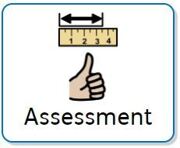Assessment
Vision
 Assessment at Barton Hill Academy is designed to be purposeful, accurate and informative about whether pupils are successfully learning the intended curriculum. As part of our assessment procedures, collated data will be reported clearly to the relevant personnel, and it will be used to inflict positive change to classroom practice to maximise learner potential. Information gathered, though a multitude of assessment styles, will be used to identify gaps in learning and inform a learning path for every child.
Assessment at Barton Hill Academy is designed to be purposeful, accurate and informative about whether pupils are successfully learning the intended curriculum. As part of our assessment procedures, collated data will be reported clearly to the relevant personnel, and it will be used to inflict positive change to classroom practice to maximise learner potential. Information gathered, though a multitude of assessment styles, will be used to identify gaps in learning and inform a learning path for every child.
Core principles
Develop a positive attitude to assessments amongst staff and pupils. Assessments are designed to be purposeful and unpressured. By using hinge questions, ‘low-stakes’ quizzes alongside NfER assessment papers, we create a positive environment around assessments that allows children to do their best and maximises the informative nature of the assessments for teachers and leaders – informing school development priorities and lesson planning.
Exploit the benefits of assessment on learning and memory. The approach to assessment makes use of the ‘testing effect’. Research has shown that regular assessment, if used in appropriate ways, strengthens long-term memory and recall.
Focus teachers and leaders workload for the benefit of the children’s learning. Information gathered through assessment techniques allow teachers and leaders to focus on their key priorities, which leads to the benefit of the children’s learning. By using this information accurately and effectively, teachers and leaders are able to focus workload into areas that will improve the learning experience.
Inform learning paths for every child, including gap fill. Through robust analysis of our assessments, we inform individual learning paths for each child, including any gaps in knowledge that they need to fill to meet the expected standard for their stage in their education. The curriculum is the progression model. It sets out what we want pupils to learn, and therefore their ‘progress’. If pupils are successfully learning the curriculum, they must be making progress.
Challenge and improve classroom practice, in all areas. Teachers and leaders report and use information gathered from assessments to challenge and improve our practice. Leaders and teachers meet three times a year to discuss findings and challenge ourselves to continually improve our learning offer, to maximise the learning potential of the our children.

